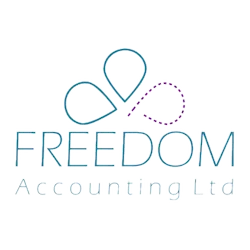Mastering Record-Keeping: Tips for Keeping Your Finances Organized

Effective record-keeping is like having a trusty compass that guides your small business towards accurate tax reporting and minimizes the chances of unexpected audits. I understand the importance of maintaining organized financial records, and in this friendly guide, I'll share practical tips and tools to streamline your bookkeeping processes. Let's embark on this journey together and discover how you can make record-keeping a breeze!
 1. Establish a Systematic Approach:
1. Establish a Systematic Approach:
Let's start by creating a system that will keep your records sailing smoothly. Find a cozy spot, whether physical or digital, where you can store all your financial documents like receipts, invoices, and bank statements. Keep everything well-organized, easily accessible, and structured in a way that makes finding and reviewing records a breeze.
 2. Track Income and Expenses:
2. Track Income and Expenses:
Stay on top of your game by diligently tracking your business's income and expenses. Be sure to record every bit of income, whether it's from sales, services, or any other source. Categorize expenses into relevant buckets like office supplies, utilities, or travel expenses. Don't worry, I've got your back with accounting software or online platforms that automate these tasks, giving you a central hub to track and categorize your financial data.
 3. Retain Relevant Documents:
3. Retain Relevant Documents:
Think of relevant financial documents as your trusty sidekicks. They're there to support your tax filings and help you conquer any potential audits. Keep your receipts, invoices, bank statements, tax returns, and other business-related documents safely stashed away. Whether you opt for physical filing cabinets or cloud storage, the key is to have a reliable archiving system that keeps your records secure and easily accessible.
 4. Separate Business and Personal Expenses:
4. Separate Business and Personal Expenses:
Let's avoid any mix-ups! It's important to separate your business and personal expenses to maintain accurate records. Open a dedicated business bank account and use it exclusively for all business-related transactions. This clear distinction makes tracking a breeze and ensures your personal expenses don't accidentally wander into your business records, causing headaches during tax reporting.
 5. Embrace Technology and Automation:
5. Embrace Technology and Automation:
Who said record-keeping can't be fun? Embrace the wonders of technology and automation to make your life easier. Accounting software like Xero, MYOB, or QuickBooks can do wonders by automating data entry, generating invoices, and providing comprehensive financial reporting. These platforms can even integrate with your bank accounts, making reconciliation and categorization a breeze. Explore cloud-based solutions for real-time access to financial records, even when you're on the move.
 6. Regular Reconciliation:
6. Regular Reconciliation:
Think of reconciliation as a mini treasure hunt. Regularly reconcile your bank statements with your accounting records to ensure everything adds up. This process helps identify any discrepancies, such as missing transactions or errors, making sure your records are accurate and in line with your actual financial position.
 7. Seek Professional Guidance:
7. Seek Professional Guidance:
When the waters get choppy, it's always helpful to have a knowledgeable navigator by your side. Consider reaching out to a qualified accountant or bookkeeper who can provide expert guidance and ensure your record-keeping practices align with New Zealand's tax regulations. They'll be your trusted co-captain on this record-keeping voyage.
Keywords:
Tax Record-keeping, Financial records, Tax reporting, Small business owners, Bookkeeping processes, Accountant Kerikeri
